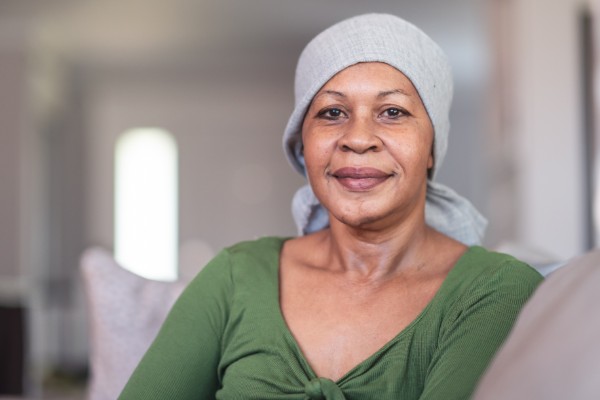Coronaviruses are a family of viruses common in people and animals. The specific coronavirus responsible for the current global pandemic is officially known as SARS-CoV-2. The virus causes the respiratory disease COVID-19.
If you have cancer you may be wondering if you are at higher risk of getting sick and how you can protect yourself. As a new virus, there is no vaccine and few treatment options. Preventive measures are the best way to stay well and continue your treatment plans.
Are people with cancer at a higher risk of getting COVID-19?
Many people will get COVID-19 and have mild symptoms. But the risk of developing serious complications is higher for some individuals, including those:
- Over the age of 65
- With underlying conditions such as heart disease, asthma and diabetes
- With weakened immune systems
Some types of cancer and cancer treatment do weaken the immune system and make it more likely you will get complications from the infection. For example, having surgery, undergoing chemotherapy, radiation and/or targeted therapies can all compromise the normal function of a healthy immune system. Speaking with your medical team can help identify if your diagnosis or treatment puts you at a higher risk.
How can I protect myself from coronavirus?
The coronavirus spreads through respiratory droplets when an infected person coughs or sneezes. Direct social contact increases the spread of the virus. Therefore, the best way to prevent illness is to avoid contact with infected individuals through social distancing and self-quarantine. That includes staying home whenever possible and maintaining 6 feet of separation from other people if you do need to go out.
Additional preventive measures recommended by the Centers for Disease Control and Prevention include:
- Wash your hands frequently
- Avoid touching your face, nose and mouth
- Maintain a few weeks of medications, food and other essentials on hand
- Avoid nonessential travel
- If you do have to go out, avoid crowds
Can I still get my treatment?
Your treatment and visit schedule may change based on your specific diagnosis, the medical facility where you receive treatment and other factors. To help reduce contact exposure, some routine visits that do not involve infusions or other treatments may be conducted virtually through a computer or phone.
“It’s important you talk to your doctor about your diagnosis and treatment plan to identify your level of risk, potential changes to your treatment plan and how best to protect yourself from getting sick,”says Alexander Starodub, M.D., medical oncologist with Riverside Health.
Before your next treatment, call your oncologist for recommendations on what you should do next. The coronavirus pandemic is a rapidly evolving situation and speaking directly with your health care provider will ensure you have the most up up-to to-date information.
What should I do if I think I have the coronavirus?
Fever, cough and shortness of breath are all symptoms of COVID-19. If you are experiencing these symptoms, please call your health care provider immediately to receive guidance.
At Riverside we are dedicated to caring for you and your family. Stay up to date with changes to our health system in response to coronavirus.
At Riverside Cancer Center, we understand that your loved one wants to be involved in your care, but visitation during treatments is limited to patients only during COVID-19. We will accommodate appointment visits with your loved ones via Facetime or other virtual measures to help keep them informed during these challenging times.



